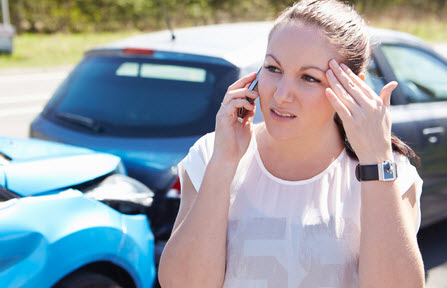Proposed legislation which would ban most forms of distracted driving, and give police officers new enforcement tools, cleared an important hurdle in the State Senate.
Sen. Wilton Simpson (R-Homosassa Springs) urged his fellow lawmakers to approve the bill, since “we’ve had record numbers of deaths in this state by distracted driving.” The proposal would apply the current cell phone law to all device-related usage, unless the vehicle is not moving in traffic. Furthermore, the proposal would elevate distracted driving tickets to primary offenses, so law enforcement would probably hand out many more cell phone tickets. The law also contains provision designed to restrict racial profiling, which is a major objection among the law’s opponents.
Previously, House Speaker Jose Oliva (R-Miami) said the bill would get a fair hearing when and if it reaches that chamber.
Distracted Driving and Negligence Per Se in Florida
Overall, red states have been slow to limit cell phone use among drivers. Florida is a good example. Over a decade into the smartphone era, the Sunshine State’s law only applies to talking and texting on a phone. According to this law, “texting” includes not only text messages but also emails, social media posts, and any other form of text-based communication.
However, the law does not apply to game-playing, web surfing, app usage, picture taking, and any other smartphone use. Additionally, officers may only issue cell phone tickets if they pull drivers over for another offense, like speeding.
Despite the holes in the law on both the legislative and enforcement sides, Florida’s negligence per se doctrine still applies in some distracted driving-related car crashes. Tortfeasors (negligent drivers) are usually liable for damages as a matter of law if:
- They violate a safety law, like the distracted driving law, and
- That violation substantially caused the victim/plaintiff’s damages.
In many cases, negligence per se is only a presumption of negligence. To establish liability in Florida, the victim/plaintiff must introduce additional evidence, such as speeding or another moving violation.
Even if the tortfeasor somehow got the ticket dismissed, perhaps by taking defensive driving, the negligence per se shortcut may still apply. In Florida, the jurors determine all the facts in a civil case, including guilt or innocence on matters like traffic tickets. These findings are not binding in criminal court, because there is a different standard of proof.
Florida, Distracted Driving, and Standard Negligence Claims
Talking and texting on a phone are obviously not the only things which distract Florida drivers. In addition to the other electronic distractions mentioned above, there are other distractions, such as:
- Eating,
- Drinking,
- Talking to passengers,
- Staring out the window at the sites of scenic Brandon, and
- Adjusting the air conditioner level or music volume.
If the distraction was so bad that it breached a legal duty, the driver may be legally responsible for damages.
Most drivers have a duty of ordinary care. They must drive defensively and pay attention to the road. A casual conversation with a passenger is probably not a breach of a duty, but a heated exchange with a passenger may qualify as such. If the breach of duty substantially caused injury, the tortfeasor may be liable for damages.
If the victim/plaintiff sustained a serious injury, car crash damages usually include compensation for economic losses, such as medical bills, and noneconomic losses, such as pain and suffering. Florida’s definition of “serious injury” is rather complex. But normally, if the victim/plaintiff’s care was not drivable after the accident, the victim probably sustained a serious injury.
Contact Tenacious Attorneys
Distracted drivers often cause serious injuries. For a free consultation with an experienced Brandon car accident lawyer, contact Reed & Reed. We have four area offices (St. Petersburg, Lakeland, Tampa, and Clearwater).
Resource:
tallahassee.com/story/news/2019/03/08/florida-could-outlaw-all-forms-distracted-driving/3104930002/
https://needreed.com/electronic-evidence-in-florida-car-crash-cases/

